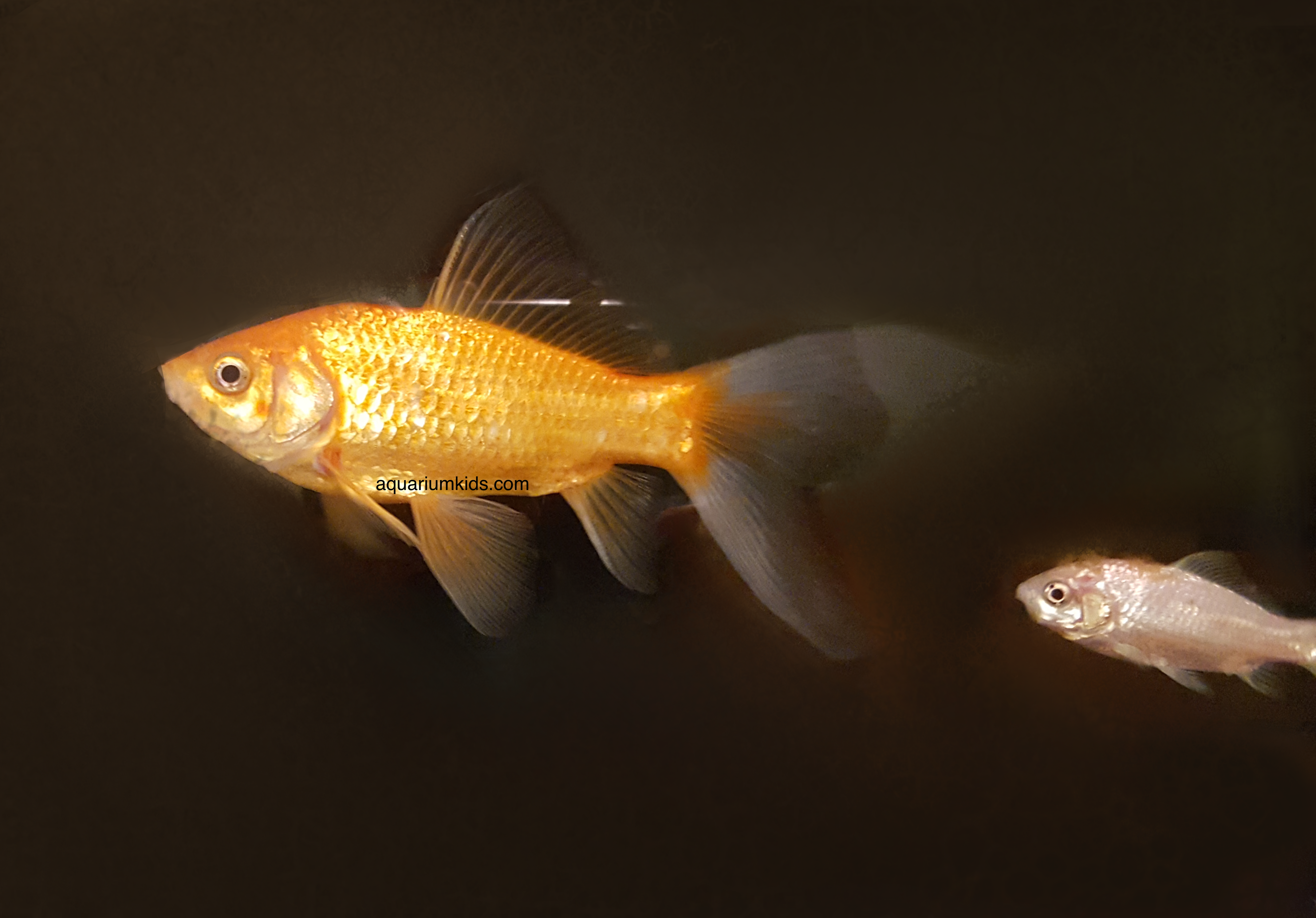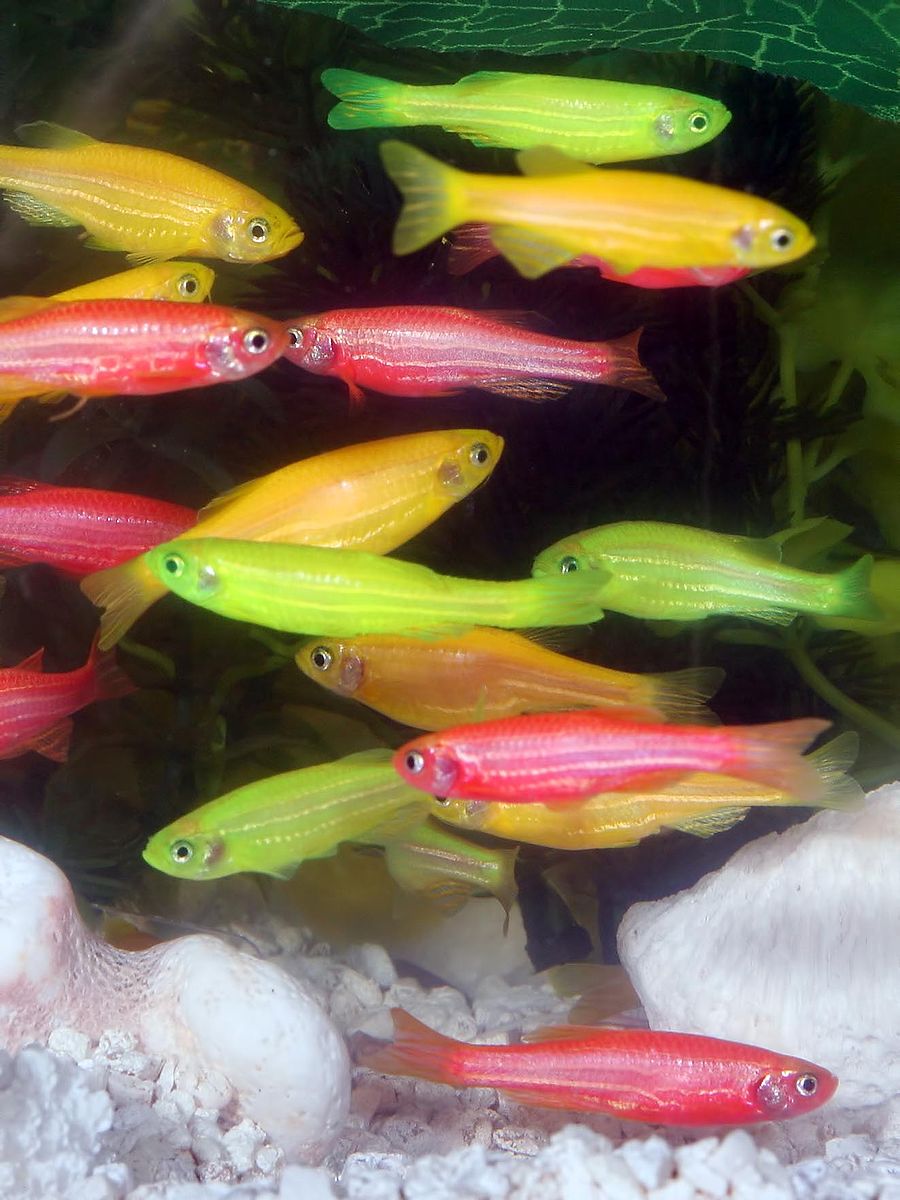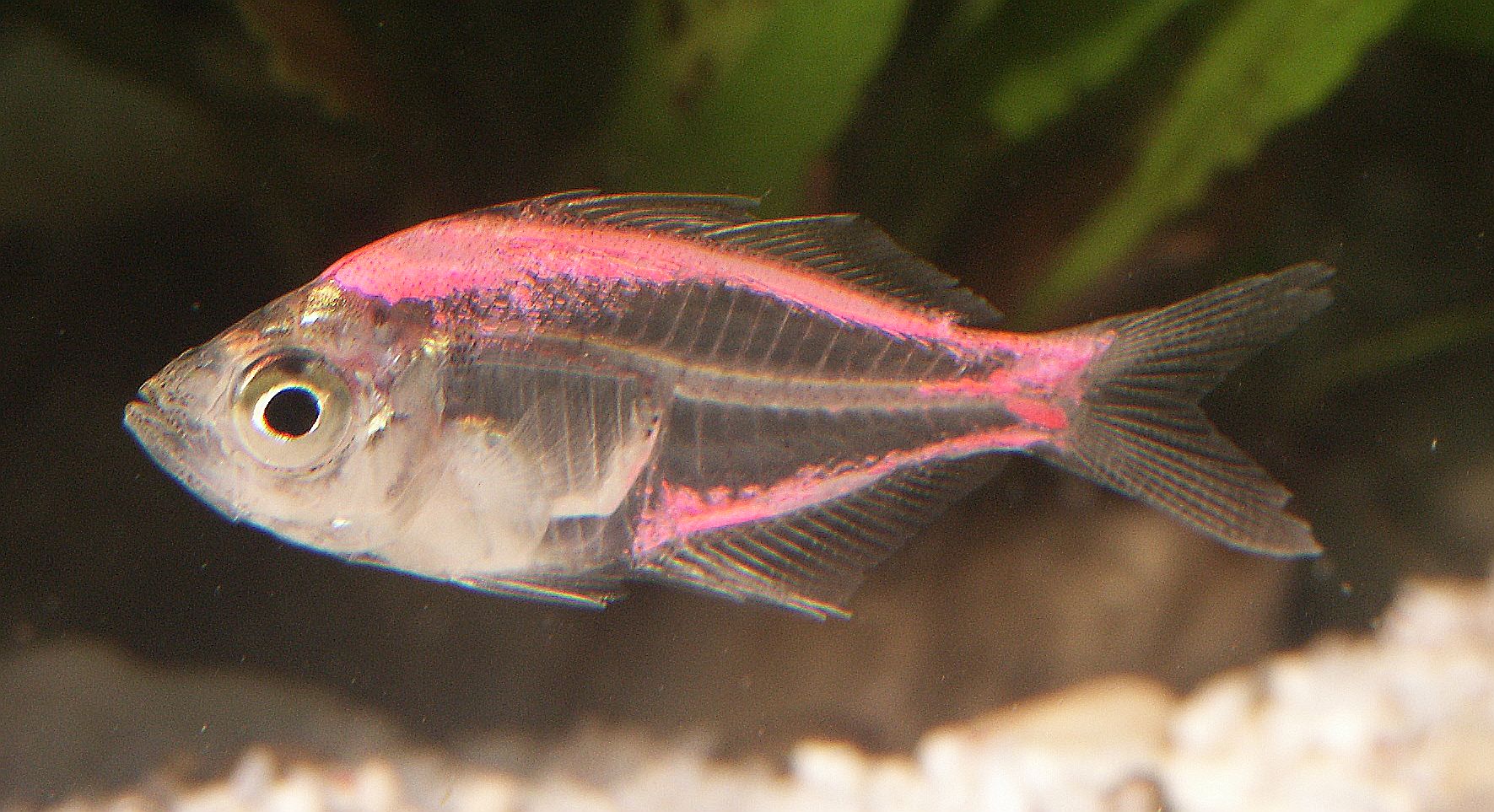The Ethics of Fishkeeping

As I sit here in my room, staring at my goldfish, Caramel and Cream, I contemplate how life must be for them, confined to a mere 56 gallons of water for the entirety of their lives. I ask myself the question: “Is keeping fish moral?”
The ethics of aquariums and keeping fish as pets

To this question, PETA could give you a one-word answer: a definite “no!” The pet industry could do the same: an enthusiastic “yes!” However, the real answer lies somewhere in between these two polar opposites.
We all know that keeping a dog locked up in a cage for its life is immoral because dogs are capable of feeling emotional pain when they are deprived of the joys of life. What makes fish different from dogs, and any other animal that we keep as pets? Research has proven that fish do develop bonds with one another, and can even bond with people as well. Why is it then okay for us to confine them to glass cages?
The answer is that it’s often better for them than the alternative. Obviously, our fish would be much happier if they were allowed to swim free in the wild, but this isn’t a feasible option. By keeping some animals in captivity, the aquaria industry has saved many species, which are now extinct in the wild, from passing into complete and utter oblivion.
Even in the case of fish whose wild habitats are still relatively intact, we still usually can not return them to nature. Local laws prohibit the dumping of fish in order to prevent introduction of species into the surrounding ecosystems. Doing so could result in the spread of invasive species. Lionfish, for example, being dumped into the wild has resulted in the Atlantic Ocean becoming overrun with these creatures and duckweed being emptied into streams has choked many ecosystems to death.
In addition, many of these fish are no longer capable of surviving in the wild as they have lost their natural adaptations such as camouflage as a result of selective breeding. Imagine a bright, flashy guppy trying in vain to hide from a heron skimming across the water. Doesn't work out too well for the fish, does it?
In almost all cases, returning fish to the wild is not a viable option. It is our duty as fishkeepers to provide our fish with the best lives possible. We can do this by ensuring that we are able to provide adequate conditions for them.
In summary, keeping fish lies somewhere between moral and immoral. We confine these intelligent beings to relatively small tanks, yet the other options are much, much worse.
The ethics of pet stores
Critics of fishkeeping often cite the horrendous conditions that fish have to undergo at pet stores, from being stuffed into tiny tanks and being subject to extreme negligence. I completely agree with these people on their opinions regarding the suffering that these animals experience during their time in the fish industry.
By buying a fish to take care of, you can provide it with a home for the rest of its life, one better than it would have at the fish store. However, the best method of obtaining new fish is by adopting them from others so that you do not contribute to the horrors of the aquarium industry. Adopting fish is morally preferable to buying them, but buying fish can still be okay, granted that you do your research first and are prepared to take care of your new fish for the rest of their lives.
The ethics of fish as carnival prizes
Another way to obtain pet fish, aside from buying or adopting them, is “winning” them at a carnival. In the United Kingdom, giving live fish as prizes to minors under the age of 16 without parental consent is illegal. However, in the United States and in other countries, this practice is routine, occurring at festivals and parties worldwide. Though giving fish away can help foster a lifelong passion for animals in impressionable children, not every family is prepared for the commitment of fish, especially not at a whim’s notice. Because of this, I am against the giving away of fish as prizes at carnivals or fairs. Not only is it unfair to these fish to have them placed in the care of people who are likely not ready nor prepared to do so, but it is also unfair to the families who must care for those fish. The inevitable passing of many fish due to a lack of experience and beginners' mistakes can be a major cause of stress in families and leave kids with a lifelong association of death and sorrow with the keeping of fish.
The ethics of feeding fish
I am a vegetarian. I do not eat meat, gelatin, or rennet because I believe that it is immoral to consume animals as they are living organisms, deserving of respect and life. And yet, every day after eating dinner, I walk back to my room and feed my fish with, well, other fish (in the form of pellets). This sounds very contradictory and I will now explain why I still do it. First of all, there is a difference between the terms “moral” and “morally justifiable.” Certain actions such as lying, stealing, and killing are all immoral actions. However, there are certain instances where one can justify these immoral actions, such as lying to save someone’s life, or killing one person to save a hundred. The difference between ethical vegans/vegetarians and most omnivores is whether or not we consider the killing of animals for our food to be morally justifiable. In the case of killing animals for human consumption, I find it to be morally unjustifiable because almost all humans do not require meat to live. On the other hand, many of the fish that we keep in our homes are animals that do in fact need to eat other animals to survive. I find the feeding of fish pellets to my fish to be immoral, but I also find it to be morally justifiable because my fish need that food to survive.
The ethics of genetically modified fish

Nowadays, many health-conscious people are against the use of GMOs (genetically modified organisms) as food. While the debate about genetically modified pets is significantly smaller, there are still many strongly opinionated people on both sides of the issue. Almost all fish that we keep as pets have been selectively bred to have traits we deem favorable, but scientists have taken it even further with some fish, specifically GloFish, a genetically modified fish that “glow.” GloFish can be Zebra Danios, among other species as well. Originally, these fish were genetically modified to test waters for pollutants, with the potential to save thousands of lives. Now, these fish have been made available to the general public as pets.
As GloFish can live exactly the same as their non-glowing counterparts in aquaria, and because they do not undergo suffering as a result of their unique coloring, I believe that the keeping of GloFish as pets is as moral as keeping any other fish. However, I also believe that we should not genetically modify other fish in the future unless they serve scientific purposes such as GloFish did. Some people are against the modifications of fish and as well as any other organism in general as it is too akin to “playing God.” The deed has already been done and we now have GloFish. The decision regarding whether or not to keep these animals is a personal choice, just as keeping any other fish is.
The ethics of dyed fish

Imagine your skin being ripped off your body and then being dipped in a vat of chemicals, or being forcibly tattooed over and over. Well, that's exactly what dyed fish such as Stained Glass Fish (see picture) have to undergo. These poor animals are stripped of their essential slime coats and then either injected with dye or dyed in a bath of chemicals. This cruel procedure has an extremely high mortality rate and inflicts large amounts of pain on innocent fish. Please do not support the dyed fish industry and refrain from purchasing these fish, despite their unique appearances.
The ethics of euthanasia
Euthanasia, whether it be for humans or for pets, is a highly controversial topic. In essence, euthanasia is the "putting down" of a fish in the name of reducing suffering. I believe that occasionally euthanasia does have its time and place, but that it is often performed prematurely. If your fish has an infectious disease, you should isolate it from other fish and attempt to treat it. Cream, one of my goldfish, was in horrible shape at the Duveneck Harvest Carnival (a local elementary school). I took home Cream, along with a few other goldfish who were extremely sick, and was able to bring half of them back to good health. While many aquarists would have simply put these fish down, I believe that we should at least be giving fish a chance before jumping to euthanasia. In the event that you do need to euthanize your fish, the most humane way to do it is by administering clove oil. Please do not flush live fish down toilets or place them in boiling water as this causes unnecessary suffering.
The ethics of fishbowls
Two words: Just no.
Fishbowls are extremely prone to both temperature and parameter swings due to their small sizes. Fish bowls should never be used to permanently keep fish. Keeping a fish in a fishbowl for its entire life is similar to keeping a baby in a shopping cart for its entire life. Completely absurd? That's right. Like a baby will outgrow of a shopping cart, a goldfish will outgrow its bowl as well as goldfish can grow to roughly a foot long, which is larger than a fish bowl.
For a deeper exploration into fishkeeping, visit aquariumkids.com and connect with us on Facebook (facebook.com/aquariumkids), Google+ (google.com/+aquariumkids), Instagram (instagram.com/aquariumkids), Tumblr (aquariumkids.tumblr.com), and Twitter (twitter.com/aquariumkids)! Feel free to contact me at evanb [at] aquariumkids [dot] com with any questions.
Thanks for reading this exploration into ethics of fishkeeping (published 2/20/16)! For more information, please browse around aquariumkids.com! Feel free to contact me at evanb [at] aquariumkids [dot] com with any questions.
Do you agree or disagree with my views on the ethics of fishkeeping? Or do you want to hear my opinion on another aspect of fishkeeping? Let's start a discussion in the comments section below:
Sincerely,
Evan Baldonado
Image credits:
- GloFish: Glofish.com (usage allowed with attribution)
- Painted Indian Glass Fish: Quatermass (public domain)
